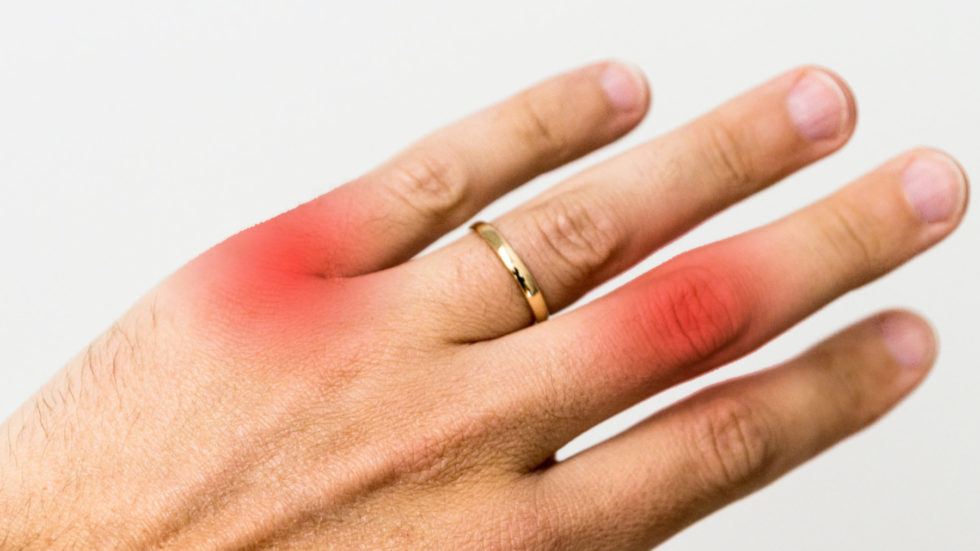Coping With Arthritis

Put simply, arthritis means inflammation of the joints and can be due to numerous causes. although it is thought of as a disease of the elderly, it can affect people of all ages, even children. There are more than a hundred different types and over 10,000 people in the UK live with the disease.
Arthritic symptoms can be very debilitating, with joint pain, sti ness, loss of movement, swelling and bone deformity. Two of the most common are osteoarthritis and rheumatoid arthritis.
Osteoarthritis can affect the knees, hips, spine, and fingers. It occurs when the cartilage that acts as a shock absorber between the joints wears away or becomes damaged through illness or injury. It can also have a hereditary factor.
Rheumatoid arthritis is an autoimmune disease that causes the body’s immune system to attack its synovium – the soft tissue around joints that produces lubricating synovial fluid. Over time, this damages the joint. It can also lead to systemic symptoms such as generalised fatigue, loss of appetite and even anaemia.
Sadly, arthritis is not curable but there are treatments that can help alleviate symptoms. The first step is to go and see your GP, who can check your joint condition and range of movement and refer you to a specialist for assessment.
Treatments for arthritis aim to reduce pain and swelling and to help with movement. They can include medication, physiotherapy, walking aids, steroid injections into the joint, or in severe cases, joint replacement.
Targeted exercises that strengthen the muscles around the joint will help alleviate pressure and reduce pain. A relatively new and effective treatment for osteoarthritis is AposTherapy®, which works to realign your joints and improve your gait or walking pattern through the daily wearing of specially customised footwear. Treatment can take several years but results over time have shown greatly decreased levels of pain in patients.
RoseHealthLosing weight will help as it reduces pressure on the joints. You may find that certain foods exacerbate your arthritis, so choosing a diet rich in antioxidants can be beneficial. Avoiding fatty, processed and sugary foods can make a difference.
Applying heat pads or ice packs can also help temporarily relieve pain and/or swelling. The most important thing is to keep the joint moving as much as possible. Although your instinct may be to rest, this will be detrimental in the long term.
Your doctor may recommend you for surgery – usually a hip or knee replacement. Currently, knee replacements do not last as long as hip replacements, so consultants are not as willing to carry them out on younger people.
There are also supplements available over the counter that reduce inflammation and support joint health, such as curcumin and glucosamine. It is now believed that some people who suffer from rheumatoid arthritis are sensitive to gluten, so cutting this out of your diet may be worth trying.
Living with arthritis is not always easy, but do not despair as there is help available.
For more information visit the Arthritis section of the NHS website here






